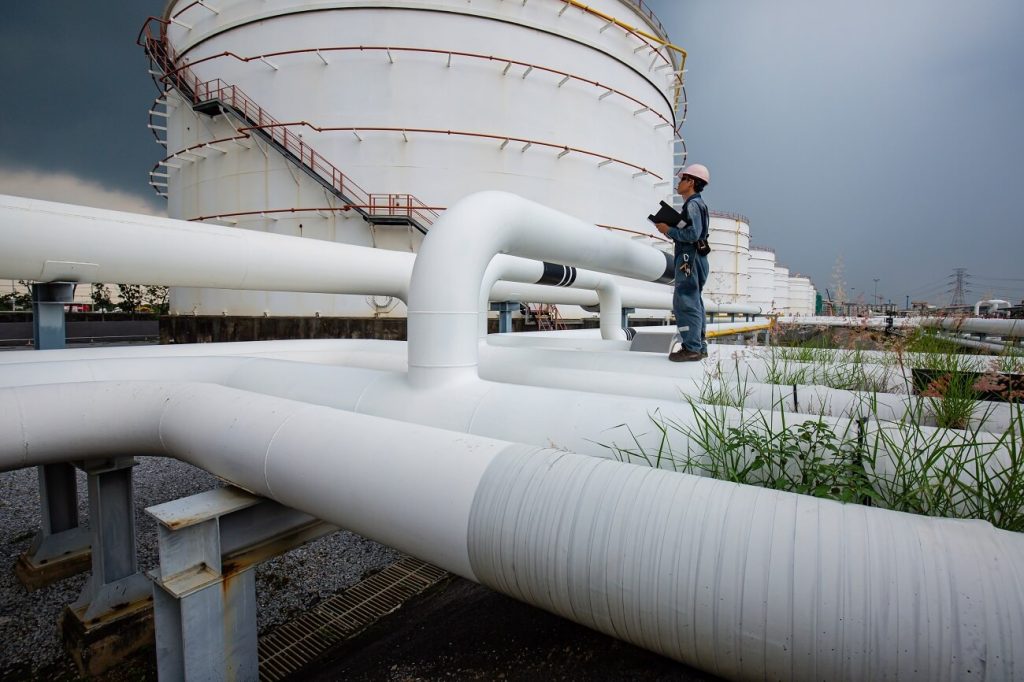In industries such as construction or oil and gas, subpar coatings lead to expensive reworks, downtime, and even accidents. It’s essential to ensure high-quality paint inspections are carried out to extend the life of key infrastructure and guarantee safety.
But this presents many businesses with an issue – should they conduct paint inspections in-house or outsource to third-party specialists? Here, we will discuss the advantages and disadvantages of in-house paint inspections and outsourced paint inspections to help you determine which solution best serves your company’s requirements.
Arguments for In-House Paint Inspections
Insider Knowledge
In-house coating inspectors may have more knowledge of the industry and project in question. By working with a company’s infrastructure and equipment over long periods they become familiar with the materials and processes used by the company, as well as the unique challenges they face and the quality standards they expect. Therefore, in-house paint inspectors may provide more tailored inspections.
Availability
With an in-house team, paint inspection resources are dedicated entirely to the company, rather than shared among multiple clients as with outsourced paint inspections. This means in-house coating inspectors are able to provide quicker response times when a coating defect is discovered.
Arguments for Outsourced Paint Inspections
Costs
Coating inspectors in the UK require ongoing training and certification from bodies such as ICorr and NACE, guaranteeing an up-to-date knowledge of best practices and technology, a high standard of quality control, and compliance. Maintaining such accreditations can be expensive.
Furthermore, the advanced equipment required to perform paint inspections, such as gauges and test kits, and software for data logging and analysis are costly. Thus, it’s more cost-effective in the long term to outsource paint inspections.
Better Quality Equipment
In-house teams may not have access to the same advanced equipment as specialists. Outsourced paint inspection services utilise cutting-edge tools and testing kits, such as high-resolution digital microscopes, pull-off adhesion testers and ultrasonic thickness gauges. Specialised equipment provides more accurate results from testing.
Objectivity
When paint inspections are performed in-house there’s a risk of bias. For instance, if those in charge of a construction project are focused on reducing costs, the in-house team may minimise coating issues to avoid the cost of corrective work and fail to flag issues that could be improved.
Professional paint inspectors, on the other hand, will make a thorough and unbiased assessment against quality standards, reporting all of their findings.
Compliance
Certification from bodies such as NACE ensures professional paint inspectors adhere to recognised international standards such as ISO 12944. Using their in-depth knowledge of regulations, third-party paint inspectors can identify and mitigate potential violations that could lead to penalties if overlooked, for example, inadequate environmental controls during application.
Experience and Expertise
Professional coating inspectors are more likely to have a diverse scope of knowledge and experience. Working across industries, projects, and coating systems, they have the depth of knowledge to identify issues that a less-experienced inspector might miss.
Furthermore, outsourced paint inspection services prioritise ongoing training and stay up to date with the latest technology and best practices in the field. There may not be a dedicated budget for such in-house.
Flexibility
It’s easier to alter the scope of or scale outsourced paint inspections. With access to a larger workforce, a paint inspection service can quickly scale up a project and deploy specialised inspectors without the need for a company to permanently hire more staff.
As outsourced paint inspectors adhere to standardised procedures, they also have the capacity to move across projects and locations while maintaining a consistent, high-quality service.
Safety
Safety is paramount to paint inspection specialists. Teams undergo rigorous safety training programmes and must adhere to stringent safety protocols. For instance, professional paint inspectors know how to handle hazardous materials, carry out elevated work, and enter confined spaces safely. They further use equipment such as air quality monitors to guarantee safety during tank or pipeline inspections.
Protect Key Infrastructure with Outsourced Paint Inspections
Overall, outsourcing paint inspections to a third-party professional service offers greater assurances in terms of safety, compliance, long-term savings, and more. Using advanced equipment and state-of-the-art methods, professional paint inspectors are able to provide a more comprehensive, unbiased assessment with the ultimate goal of protecting public safety and the company’s assets.
At Paint Inspection LTD we have a team of highly-skilled NACE and ICorr-certified inspectors. Our inspectors use their far-reaching experience to perform high-quality coating condition surveys, failure analysis, quality control reviews, and more across industries such as oil and gas, construction, marine, and renewable energy. Contact us today to learn how we can guarantee the safety and durability of your next paint project.




